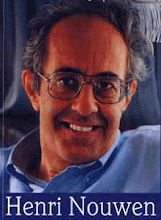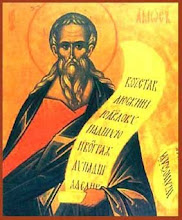Reprise for the Clean and Unclean (See Wednesday October 17, 2007) sparked a shower of wisdom, but none like M.A.’s comprehensive synthesis that brought us to understanding some ancient Hebrew customs to the crucifixion and then on to Peter and a vision that sparked the new age of the gentiles. M.A. brings clean and unclean to us this way...
“Every society has its cultural norms for ritual purity, i.e., explicit or implicit rules governing what is acceptable and unacceptable. Such cultural norms were quite elaborate and rigid in 1st Century Judea and Palestine: Certain foods, Non-Jews, lepers, menstruating women, tax collectors, prostitutes, were all ritually impure, and no pillar of the community would partake of or associate with them.
The most ritually impure object for that society was an impaled corpse; it was to be taken down before sunset or avoided at all costs. In his crucifixion, Jesus the Christ became the most ritually impure object that his society could imagine. But, God's justice and sanctifying power were greater than the worst ritual impurity - God's righteousness and holiness would not allow God's most faithful servant to see corruption.
The Supreme Being, the fountain of all holiness, resurrected Jesus from a most ignominious death as a sign of God's own life-giving and sanctifying power in the world, as well as a final seal of approval on all of Jesus' words and deeds. Now, that same sanctifying power that proceeds from the throne of God is offered to all of mankind through his anointed one, his Christ. So, now, we too can realize, as Peter later did, that it is not for us to ‘call unclean, what God has declared clean,’ Acts 10:15.”
Saturday, October 20, 2007
Subscribe to:
Post Comments (Atom)


























2 comments:
M.A., thanks for the intellectual and spiritual stimulation.
You are doing a great job with the blog. I read some of the articles and they are very informative. I will send it to as many people as I can. M.I.
Post a Comment